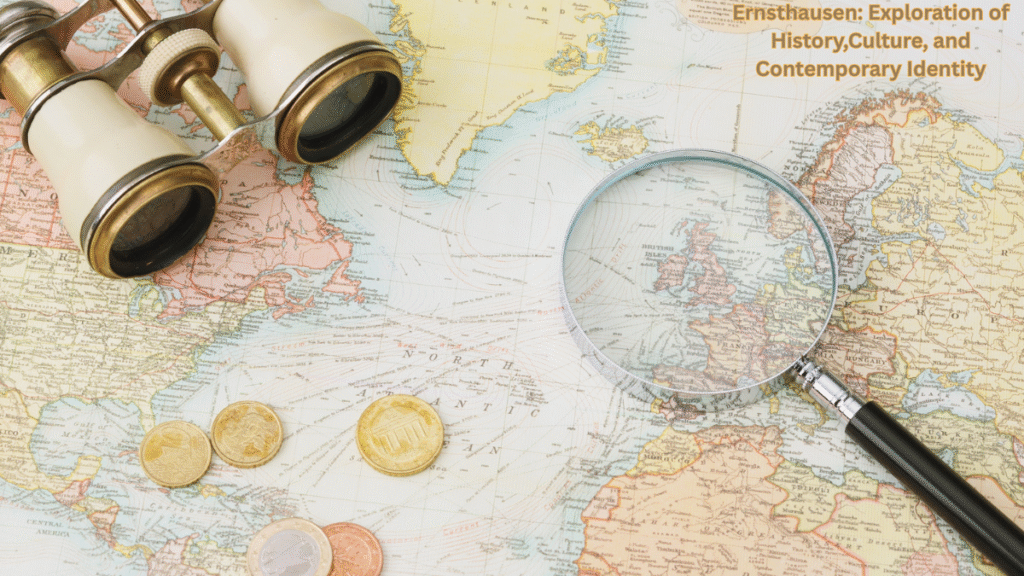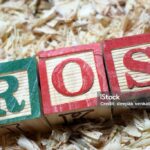When someone encounters the name Ernsthausen, the immediate question is often simple: What is it? Is it a surname, a town, or a concept buried in the folds of European history? In truth, it is all of these and more. Ernsthausen is both a place and a name, layered with heritage, tied to local traditions, and infused with a sense of identity that reflects centuries of human movement and settlement. To understand Ernsthausen fully, one must look at its linguistic origins, cultural imprints, demographic makeup, and the symbolic meaning it carries today. This article provides a comprehensive journey into Ernsthausen—informative, expansive, and relevant for readers curious about names, places, and the history that binds them together.
The Origins of Ernsthausen
The name “Ernsthausen” can be broken down linguistically into two parts: “Ernst” and “hausen.”
- Ernst has deep Germanic roots, connoting seriousness, determination, or the personal name Ernst.
- Hausen is a common suffix in German place names, meaning “houses” or “settlement.”
Together, Ernsthausen’s translates loosely to “the settlement of Ernst” or “the houses belonging to Ernst.” This reflects a medieval European practice of naming places after either a founding family or a notable figure.
During the Middle Ages, settlements were often established near arable land or along trade routes. Naming them after a leader or patriarch was a way to secure memory and legitimacy. Thus, Ernsthausen’s stands not merely as a geographic designation but as a reflection of lineage, authority, and continuity.
Geography and Location
Though the exact mapping of Ernsthausen’s varies, records and local histories suggest multiple villages in Germany and Central Europe carry this name. Most are small rural communities with populations in the hundreds rather than thousands. They tend to be located near fertile agricultural land, forests, or river systems.
These settlements share certain geographic traits:
- Mild continental climates with cold winters and warm summers.
- Soil suitable for wheat, barley, and rye cultivation.
- Proximity to forests that provided timber, hunting grounds, and wild herbs.
- Villages organized around a church or communal square.
In this sense, Ernsthausen’s is representative of the traditional European village model—intimate, agricultural, and community-focused.
Historical Evolution of Ernsthausen
To understand Ernsthausen’s historically, one must divide its development into key phases:
- Medieval Foundation (9th–13th Century)
- Emerged as a feudal settlement.
- Agricultural output tied to monastic or noble estates.
- Churches established as spiritual and administrative centers.
- Renaissance and Reformation (14th–16th Century)
- Spread of literacy and local parish schools.
- Confessional divides as Protestant and Catholic influences spread across regions.
- Gradual decline of serfdom improved peasants’ autonomy.
- Industrial Age (18th–19th Century)
- Limited industrialization, though larger nearby cities drew migrant workers from Erns-thausen.
- Some residents emigrated to America, particularly in the 19th century.
- Infrastructure development brought roads and, later, railways that connected rural Ernsthausen’s with growing urban centers.
- World Wars (20th Century)
- Villages faced upheaval, loss of young men in conflicts, and destruction of infrastructure.
- Postwar rebuilding emphasized community solidarity.
- Political boundaries shifted in certain regions, altering identity and governance.
- Contemporary Period (21st Century)
- Ernsthausen’s remains small in size but increasingly interconnected.
- Tourism, cultural heritage projects, and digital connectivity redefine its role.
- Modern residents balance tradition with globalized lifestyles.
Cultural Identity of Ernsthausen
Culture in Ernsthausen is layered and deeply tied to rural rhythms. Its cultural life revolves around community festivals, agricultural traditions, and seasonal cycles.
Festivals and Celebrations
- Harvest Festival (Erntedankfest): A major celebration thanking nature for abundance.
- Maypole Raising: Symbol of fertility and community pride, celebrated in spring.
- Advent and Christmas Markets: Local crafts, mulled wine, and carols dominate winter life.
Language and Dialect
Ernsthausen communities often speak German dialects specific to their region, infused with linguistic quirks that differ even across villages. For emigrant families, Ernsthausen has become an anchor of identity, passed on through stories, surnames, and linguistic remnants.
Cuisine
Typical dishes include rye bread, sausages, potato dumplings, and sauerkraut. Locally brewed beers or wines often accompany meals, reinforcing communal bonds.
Demographic and Economic Patterns
Ernsthausen villages typically display demographic patterns familiar to rural Europe:
- Aging populations: Young people often move to urban areas for education and work.
- Declining birth rates: Reflecting broader European trends.
- Increased immigration: Some newcomers bring diversity and revive local economies.
Economically, Ernsthausen thrives in three key areas:
| Sector | Characteristics | Modern Trends |
|---|---|---|
| Agriculture | Wheat, barley, rye, dairy, livestock. | Organic farming and agri-tourism rise. |
| Small Industry | Woodworking, crafts, and local food processing. | Niche artisan products attract visitors. |
| Services & Tourism | Local inns, cultural tourism, historical walking tours. | Growth of heritage tourism. |
This diversification allows Ernsthausen to retain relevance in the modern economy.
The Symbolism of Ernsthausen
Beyond geography, Ernsthausen symbolizes resilience. It encapsulates the persistence of small communities in the face of modernization, depopulation, and shifting borders.
For emigrant families, especially those in North America, the surname “Ernsthausen” connects them to ancestral roots. It carries an emotional weight—reminding descendants of a pastoral Europe, family narratives, and migration journeys.
In broader cultural imagination, Ernsthausen represents:
- Heritage: The connection between modern individuals and ancestral villages.
- Community: The power of small collectives in shaping identity.
- Continuity: Survival of rural life despite global upheaval.
Modern Challenges Facing Ernsthausen
Like many small rural communities, Ernsthausen faces pressing challenges:
- Population Decline: Outmigration of youth leaves aging communities.
- Economic Transition: Balancing tradition with modern employment needs.
- Climate Change: Altering agricultural patterns, threatening traditional crops.
- Cultural Preservation: Safeguarding dialects, customs, and folklore from dilution.
Yet these challenges also spark innovation. Some Ernsthausen villages embrace eco-tourism, renewable energy projects, and cultural revitalization initiatives, positioning themselves as models of rural resilience.
Ernsthausen in Genealogical Research
The surname Ernsthausen has become increasingly significant in genealogical research. Families tracing roots often discover connections to these villages. Digitized records, parish archives, and oral traditions help reconstruct family histories.
For many descendants, visiting Ernsthausen is not merely a trip—it is a pilgrimage, reconnecting with ancestral soil. Heritage tourism, therefore, plays an essential role in maintaining the vitality of these communities.
Future of Ernsthausen
Looking ahead, Ernsthausen must balance continuity with adaptation.
- Digital Connectivity: Broadband infrastructure enables remote work, reducing migration pressure.
- Sustainable Agriculture: Organic farming and renewable energy projects align with climate goals.
- Cultural Branding: Promoting Ernsthausen as a symbol of authentic rural Europe could attract visitors and investors.
- Heritage Education: Local schools and cultural centers play a role in transmitting traditions to younger generations.
The future of Ernsthausen lies in its ability to turn challenges into opportunities—making heritage relevant in a globalized world.
FAQs
1. What does the name Ernsthausen mean?
It translates to “settlement of Ernst” or “houses belonging to Ernst,” combining a personal name with the suffix “-hausen.”
2. Is Ernsthausen a real place?
Yes, multiple small villages in Germany and surrounding regions carry the name, often with rural and agricultural roots.
3. Why is Ernsthausen important today?
It serves as a cultural anchor for local residents and descendants abroad, while also symbolizing rural resilience in Europe.
4. What kind of traditions exist in Ernsthausen?
Traditions include harvest festivals, maypole celebrations, and Christmas markets, reflecting deep ties to agricultural cycles.
5. Can one visit Ernsthausen?
Yes, though small, many Ernsthausen villages welcome visitors, offering heritage tourism, cultural events, and natural landscapes.







